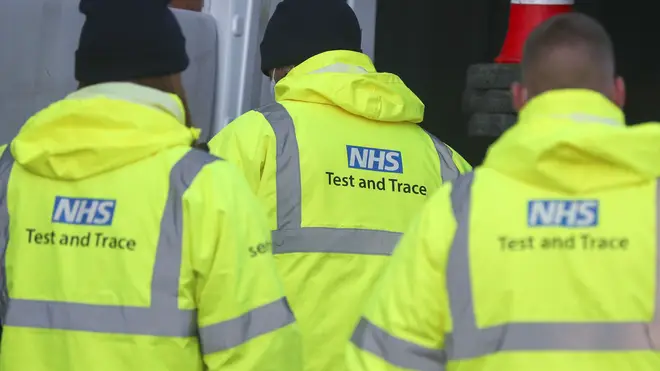
Ian Payne 4am - 7am
3 March 2021, 15:14

If such systems are kept, they must demonstrate ‘societal good’ that people can understand and challenge, Elizabeth Denham said.
Data systems used by Test and Trace should be decommissioned once the pandemic is over, the head of the UK’s data privacy watchdog has said.
Information Commissioner Elizabeth Denham told an Oxford Internet Institute webinar that people reasonably expected data to be used during the coronavirus crisis but the plug will need to be pulled on anything “sticky” when normality returns, naming Test and Trace and the NHS Covid-19 app specifically.
If there is a new way of using data that contributes to “societal good”, it will have to be managed in a way the public will understand, with trust at the centre, she said.
Ms Denham also spoke about the potential for vaccine passports, saying privacy must be considered “right at the beginning” if the Government chooses to go down that route.
On #COVID19 "We can all understand during a pandemic that people expect their data to be used. Anything that is still in service afterwards has to be trusted and challenged through @UKParliament & civil society" says Elizabeth Denham #OIIWednesdayWebinar
— Oxford Internet Institute (@oiioxford) March 3, 2021
“Faced with the challenges of a global pandemic and given the reassurance around privacy, the (Test and Trace) app was downloaded more than 21 million times,” she said.
“So the project worked because it had public trust.
“And trust will be just as central as the Government turns its attention to the next big challenge, which is: will people engage with vaccination passports?”
Ms Denham – who will leave her role in October – revealed that the Information Commissioner’s Office was contacted more than half a million times last year, demonstrating that people are “aware of their information rights” and care about them.
“Test and Trace, you can see that’s a system that needs to be decommissioned. We’ve already advised using our mandatory audit powers, that the ICO will be auditing the Test and Trace programme,” she said.
“We’re looking at the app in the same way. That needs to be decommissioned, so anything that’s sticky, anything that is still in use, in service afterwards, again, has to be trusted by the public and they have to be able to challenge that through parliamentarians and society groups, academia etc.”